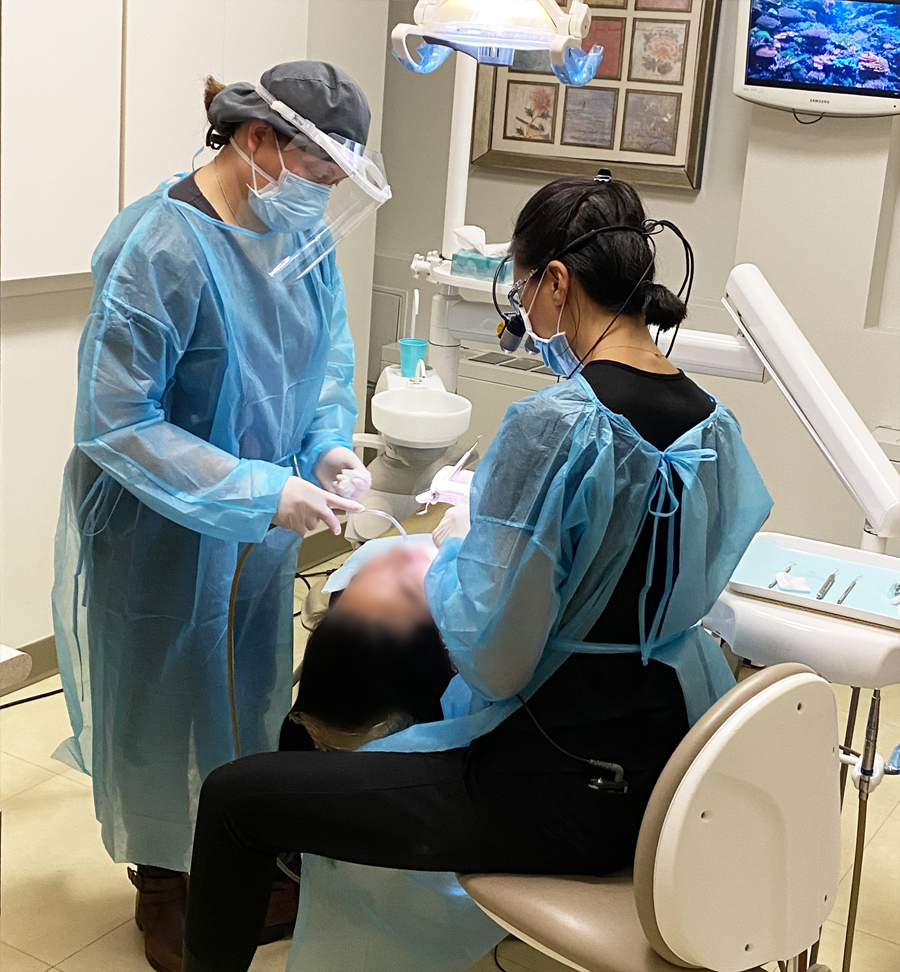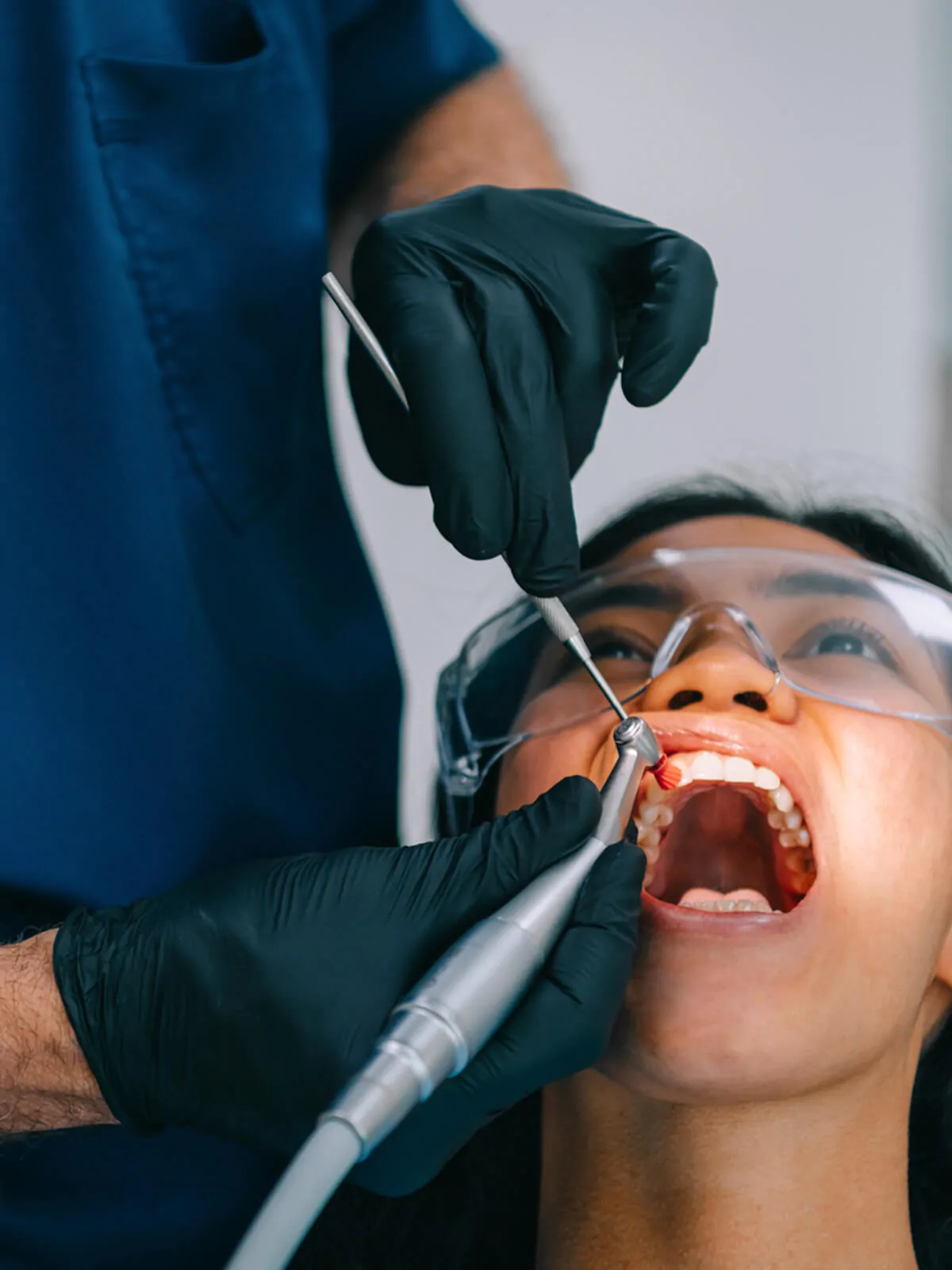Why You Ought To Choose a Neighborhood Dentist Eugene for Personalized Care
Why You Ought To Choose a Neighborhood Dentist Eugene for Personalized Care
Blog Article
Learn More About Regular Dental Issues Your Dentist Can Fix
Understanding frequent dental issues is essential for maintaining ideal oral health and wellness. Issues such as tooth cavities, gum illness, tooth level of sensitivity, poor breath, and dental caries are common yet often overlooked up until they end up being severe. Dentists possess the know-how to diagnose and treat these problems, thus preventing additional complications. Regular dental visits and personalized treatment plans can resolve these problems effectively, making certain a healthier and brighter smile. However what details treatments do dental practitioners employ to battle these issues, and just how can early treatment make a difference? The response to these inquiries supply beneficial insights into protecting your dental wellness.
Cavities
Tooth cavities, also called tooth decays, are a common dental wellness issue triggered by the demineralization of tooth enamel because of acid production from bacterial plaque. This procedure starts when bacteria in the mouth metabolize sugars and starches from food, producing acids that deteriorate the enamel. Otherwise dealt with quickly, this disintegration can permeate much deeper into the tooth, impacting the dentin and eventually the pulp, possibly leading to serious pain and infection.
The early stages of tooth cavity formation commonly existing as white spots on the tooth surface, suggesting first demineralization. As the process advances, these areas can turn into black or brown sores, representing more substantial degeneration. Regular oral exams are crucial for early discovery, as tooth cavities in their incipient stages can be treated with remineralization techniques, such as fluoride therapies.
Dentists usually remove the decayed section of the tooth and fill the cavity with materials such as composite resin, amalgam, or ceramic. Precautionary steps, including great oral health methods and dietary adjustments, play a pivotal role in reducing the threat of dental caries.
Gum Disease
While cavities stand for a considerable issue for oral wellness, another important problem that demands focus is periodontal illness. Additionally understood as gum disease, gum tissue illness is an inflammatory condition affecting the tissues surrounding and supporting the teeth. It is mainly created by the accumulation of plaque-- a sticky movie of bacteria that forms on teeth.
Periodontal disease advances through phases, beginning with gingivitis, defined by redness, swelling, and hemorrhaging gum tissues (dentist eugene or). If left unattended, gingivitis can escalate to periodontitis, where the inner layer of the gum tissue and bone retreat from the teeth, developing pockets that end up being infected. Over time, the contaminants generated by the bacteria break down the bone and connective cells that hold teeth in position, possibly resulting in tooth loss
Early discovery and treatment are essential. Expert oral cleanings and improved dental health practices, such as brushing two times everyday and flossing, can manage gingivitis. For advanced stages, therapies might include scaling and root planing, anti-biotics, or also surgical treatments.
Regular dental check-ups play an essential function in stopping and managing gum illness. Dental practitioners can determine very early indicators and advise appropriate interventions, making sure the upkeep of healthy and balanced gums and overall dental health and wellness.
Tooth Level Of Sensitivity
Tooth level of sensitivity influences millions of people worldwide, offering an usual yet commonly traumatic dental issue. This condition develops when the enamel, the outer protective layer of the teeth, is endangered, revealing the underlying dentin.
A number of variables contribute to enamel disintegration and subsequent tooth sensitivity, consisting of hostile brushing, acidic foods and drinks, gum economic crisis, and bruxism (teeth grinding) In addition, dental procedures such as teeth bleaching can briefly increase level of sensitivity.
Foul-smelling Breath
One more common oral worry that impacts individuals' everyday lives is negative breath, clinically termed bad breath. Bad breath often stems from inadequate dental hygiene, which allows food bits to continue to be in the mouth, promoting bacterial development.

Suggestions might entail improving oral health methods, this content such as routine brushing and flossing, utilizing antibacterial mouth washes, remaining moisturized, and attending to any type of oral issues. Reliable administration of bad breath not just boosts dental wellness however also considerably enhances quality of life.
Dental Caries

Stopping dental caries entails a mix of excellent oral health practices and regular oral check-ups. Cleaning teeth a minimum of twice daily with fluoride tooth paste, flossing to get rid of plaque between teeth, and limiting the consumption of sugary foods and beverages are essential precautionary procedures. Fluoride treatments, dental sealants, and expert cleansings offered by a dentist can additionally play a considerable function in fortifying enamel and avoiding degeneration.
When dental cavity occurs, very early intervention is key. Dental experts can eliminate corroded tissue and restore the tooth with fillings made from materials such as composite material, amalgam, or porcelain. In advanced situations, treatments like crowns, root canals, or extractions may be essential. By resolving dental cavity quickly, dental practitioners aid maintain dental structure and function, making certain long-lasting oral wellness.
Conclusion
Addressing common dental worries such as tooth cavities, gum illness, tooth sensitivity, foul-smelling breath, and dental Continue caries is important for keeping optimum dental health and total well-being. Dentists have the proficiency to identify and deal with these concerns properly, guaranteeing customized look after each individual. Regular dental examinations and precautionary procedures are crucial in recognizing and handling these problems early, promoting a healthier and more positive smile over a life time.

Tooth degeneration, also understood as dental cavities, occurs when the enamel, the outermost layer of the tooth, is worn down by acids generated by germs in the mouth. Cleaning teeth at the very least two times daily with fluoride tooth paste, flossing to get rid of plaque in between teeth, and limiting the intake of sweet foods and drinks are necessary preventive steps.Attending to common dental problems such as dental caries, gum illness, tooth level of sensitivity, negative breath, and tooth decay is vital for preserving optimum oral health and general wellness.
Report this page